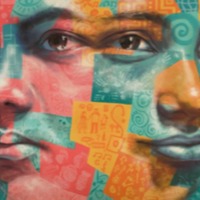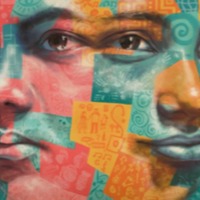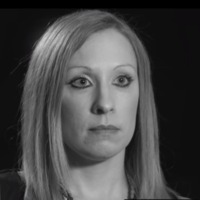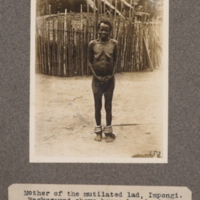
Nia
There are an estimated 520,000 experiencing modern slavery and human trafficking in the Arab States (GSI 2018). The Arab States are made up of 11 countries including Bahrain, Iraq, Jordan, Kuwait, Lebanon, Oman, Qatar, Saudi Arabia, Syria, United Arab Emirates and Yemen. The region is diverse, spanning the wealthier Gulf Cooperation Council (GCC countries) and countries such as Jordan, Lebanon, and Iraq, which are dealing with the impact of ongoing conflict in Syria. When considering the forms of modern slavery, the largest share of those in modern slavery were victims of forced labour (2.2 victims per 1,000 people), while the rate of forced marriage was 1.1 victims per 1,000 people. Over half of those in forced labour were held in debt bondage, with this form of trafficking affecting women at a greater share than men. Men and Women - primarily from South and South East Asia and Africa - voluntarily migrate to Arab States for work in a number of sectors, including construction and domestic service. Upon arrival they experience withholding of payment, debt bondage and abuse. Nia was not making enough money to take care of her children when a friend’s sister offered her a housekeeping job in Saudi Arabia. While initially she was treated well, after a few months Nia was subjected to physical abuse and withholding of pay. Nia was able to escape this situation after six months and return to Kenya. However, Nia still needed to provide for her children and travelled abroad for work two more times to Qatar and Libya, both time being mistreated and unpaid. Nia finally received assistance from HAART Kenya and set up her own salon in Kenya which was going well, until the COVID-19 pandemic left her unable to run her business. Nia is now receiving temporary financial support from HAART Kenya.

Wendy
There are an estimated 403,000 people living in modern slavery in the United States (GSI 2018). Sex trafficking exists throughout the country. Traffickers use violence, threats, lies, debt bondage and other forms of coercion to compel adults and children to engage in commercial sex acts against their will. The situations that sex trafficking victims face vary, many victims become romantically involved with someone who then forces them into prostitution. Others are lured with false promises of a job, and some are forced to sell sex by members of their own families. Victims of sex trafficking include both foreign nationals and US citizens, with women making up the majority of those trafficked for the purposes of commercial sexual exploitation. In 2015, the most reported venues/industries for sex trafficking included commercial-front brothels, hotel/motel-based trafficking, online advertisements with unknown locations, residential brothels, and street-based sex trafficking. Wendy Barnes was trafficked from the age of 15 across the US West Coast for nearly 15 years, from the mid 1980s until 2000. Her trafficker, Gregory Leon Hightower, was eventually arrested and sentenced to life in prison in Oregon. Wendy now lives in Southern California and works full time as a customer service representative. Her narrative is from an interview with Francine Sporenda for the Révolution Féministe website, originally published in French and then in English by Nordic Model Now!, a UK secular, feminist, grassroots women’s group campaigning for the abolition of prostitution and related practices. Wendy has published a book about her experiences titled And Life Continues: Sex Trafficking and My Journey to Freedom (2015).

Fathiya
There are an estimated 85,000 people living in modern slavery in Yemen (GSI 2018). Young girls are subjected to child forced marriage, with UNICEF estimating 32% of girls being married before the age of 18. There is currently no legal age of marriage in Yemen and poverty, the practice of dowry and strict social and religious customs are drivers of child marriage in the country. With the onset of conflict within the country, estimates suggest that child marriage is on the rise. Fathiya was forced to marry at 12 years old. Now at 30, she has seven children and suffers with her health due to her early marriage and motherhood.

Amy
Sex trafficking is a form of modern slavery that exists throughout the United States. Traffickers use violence, threats, lies, debt bondage and other forms of coercion to compel adults and children to engage in commercial sex acts against their will. The situations that sex trafficking victims face vary, many victims become romantically involved with someone who then forces them into prostitution. Others are lured with false promises of a job, and some are forced to sell sex by members of their own families. Victims of sex trafficking include both foreign nationals and US citizens, with women making up the majority of those trafficked for the purposes of commercial sexual exploitation. In 2015, the most reported venues/industries for sex trafficking included commercial-front brothels, hotel/motel-based trafficking, online advertisements with unknown locations, residential brothels, and street-based sex trafficking. Amy was a single mother struggling to provide for her children when she began working in an adult club. On her second night of work she met a man that offered her what she thought was a legitimate job. Once she reached his place of business, however, she was held against her will and subjected to physical and sexual abuse until she agreed to provide sexual services. In this narrative, Amy talks of the importance of training emergency services on how to deal with sex trafficking victims.
